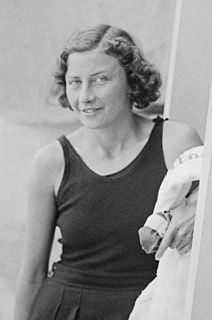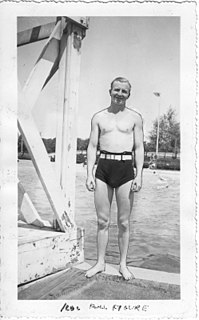
The Commonwealth Games is an international multi-sport event involving athletes from the Commonwealth of Nations. The event was first held in 1930, and, with the exception of 1942 and 1946, has taken place every four years since then. The Commonwealth Games were known as the British Empire Games from 1930 to 1950, the British Empire and Commonwealth Games from 1954 to 1966, and British Commonwealth Games from 1970 to 1974. Athletes with a disability are also included as full members of their national teams, making the Commonwealth Games the first fully inclusive international multi-sport event. It is also the world's first multi-sport event which inducts equal number of women's and men's medal events and was implemented recently in the 2018 Commonwealth Games. With such unique features, the World Economic Forum called the event inspiring and significant.

The 1938 British Empire Games was the third British Empire Games, the event that evolved to become the Commonwealth Games. Held in Sydney, Australia from 5–12 February 1938, they were timed to coincide with Sydney's sesqui-centenary. Venues included the Sydney Cricket Ground, the Sydney Sports Ground, North Sydney Olympic Pool and Henson Park. An estimated 40,000 people attended the opening ceremony. A competitors' residential village was established within the grounds of the Sydney Showground.

Scotland is one of only six countries to have competed in every Commonwealth Games since the first Empire Games in 1930. The others are Australia, Canada, England, New Zealand and Wales.

Australia first competed at the Games, then titled the British Empire Games, in 1930; and is one of only six countries to have sent athletes to every Commonwealth Games. The others are Canada, England, New Zealand, Scotland, and Wales. Australian athletes competed for Australasia at the 1911 Festival of the Empire, the forerunner to the British Empire Games.

Clara Decima Hamilton (née Norman), MBE was an Australian athlete. She was the only Australian woman who won five gold medals at the 1938 British Empire Games.

Frederick Haughton "Rangi" Thompson was a New Zealand rower who represented his country at one Olympic and two British Empire Games, winning a medal at each.

Margaret Joyce Cooper, later known by her married name Joyce Badcock, was an English competitive swimmer who represented Great Britain at the Olympics and European championships, and England at the British Empire Games, during the late 1920s and early 1930s.

New Zealand at the 1938 British Empire Games was represented by a team of 69 competitors and 13 officials, including 18 athletes, 15 rowers, eight swimmers and divers, and seven each of boxers, cyclists and wrestlers. Selection of the team for the Games in Sydney, New South Wales, Australia, was the responsibility of the New Zealand Olympic and British Empire Games Association. New Zealand's flagbearer at the opening ceremony was Jim Leckie. The New Zealand team finished fifth on the medal table, winning a total of 25 medals, five of which were gold.
Spenceley Noel Stanley Crump was a New Zealand freestyle swimmer who represented his country at the 1934 British Empire Games, where he won a bronze medal, and at the 1938 British Empire Games.
Andre Victor Olsson was a New Zealand rower who won two medals representing his country at the 1930 British Empire Games.
Charles Edward Saunders was a New Zealand rower who competed at the 1930 British Empire Games, winning two medals, and at the 1932 Summer Olympics.
James George Leckie was a New Zealand track and field athlete who won a bronze medal at the 1938 British Empire Games.
Jessie Mary Hayward is a former New Zealand high jumper and long jumper. She represented her country at the 1956 Summer Olympics and 1958 British Empire and Commonwealth Games, winning a silver medal in the high jump at the latter event.
James Roy Hill, also known as Jim Hill, was a New Zealand rower from Hamilton. A joiner by trade, he became a funeral director after his sporting career.
Mervyn David Richards was a New Zealand pole vaulter, who represented his country at three British Empire and Commonwealth Games, winning a bronze medal in 1958. He went on to become a successful coach in both pole vault and gymnastics.

Avis McIntosh is a former New Zealand hurdler and sprinter.

George Burleigh (1914–1984) was a Canadian swimmer. He won gold at the Commonwealth Games in 1930 and 1934. and held Canadian freestyle swimming records in the 1930s.
Richard 'Dick' J Workman, is a male former rower who competed for England.
Dennis R Mount (1929-2016), was a male rower who competed for England.
Anthony 'Tony' Chapman Hancox, was a male rower who competed for England.









